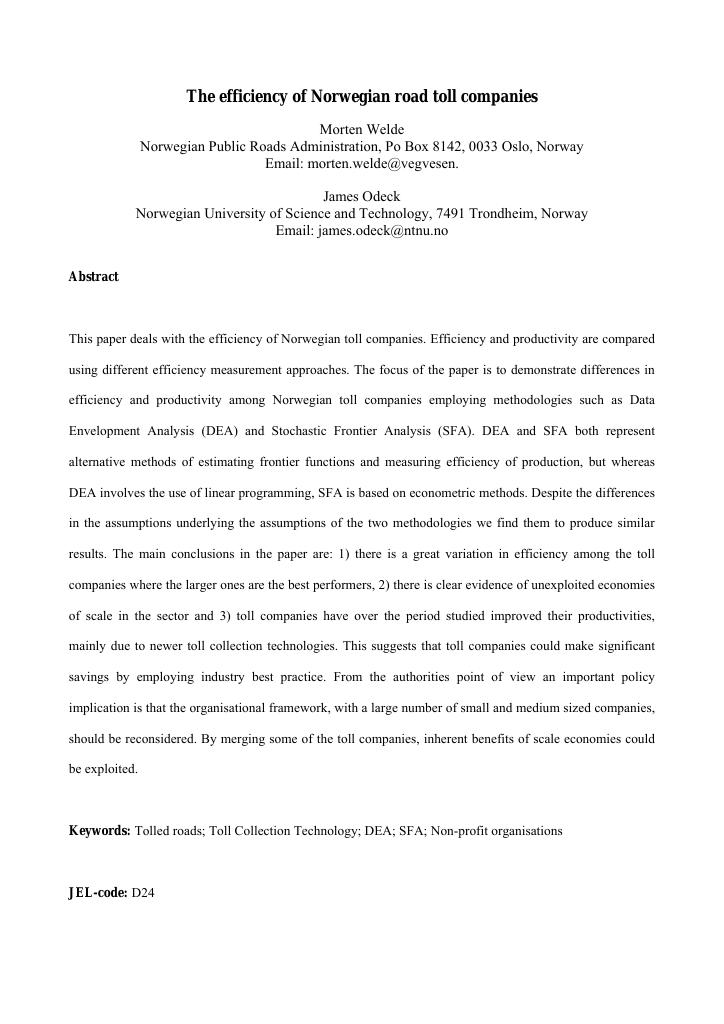Studie
The efficiency of Norwegian road toll companies
This paper deals with the efficiency of Norwegian toll companies. Efficiency and productivity are compared using different efficiency measurement approaches. The focus of the paper is to demonstrate differences in efficiency and productivity among Norwegian toll companies employing methodologies such as Data Envelopment Analysis (DEA) and Stochastic Frontier Analysis (SFA). DEA and SFA both represent alternative methods of estimating frontier functions and measuring efficiency of production, but whereas DEA involves the use of linear programming, SFA is based on econometric methods. Despite the differences in the assumptions underlying the assumptions of the two methodologies we find them to produce similar results. The main conclusions in the paper are: 1) there is a great variation in efficiency among the toll companies where the larger ones are the best performers, 2) there is clear evidence of unexploited economies of scale in the sector and 3) toll companies have over the period studied improved their productivities, mainly due to newer toll collection technologies. This suggests that toll companies could make significant savings by employing industry best practice. From the authorities point of view an important policy implication is that the organisational framework, with a large number of small and medium sized companies, should be reconsidered. By merging some of the toll companies, inherent benefits of scale economies could be exploited.
